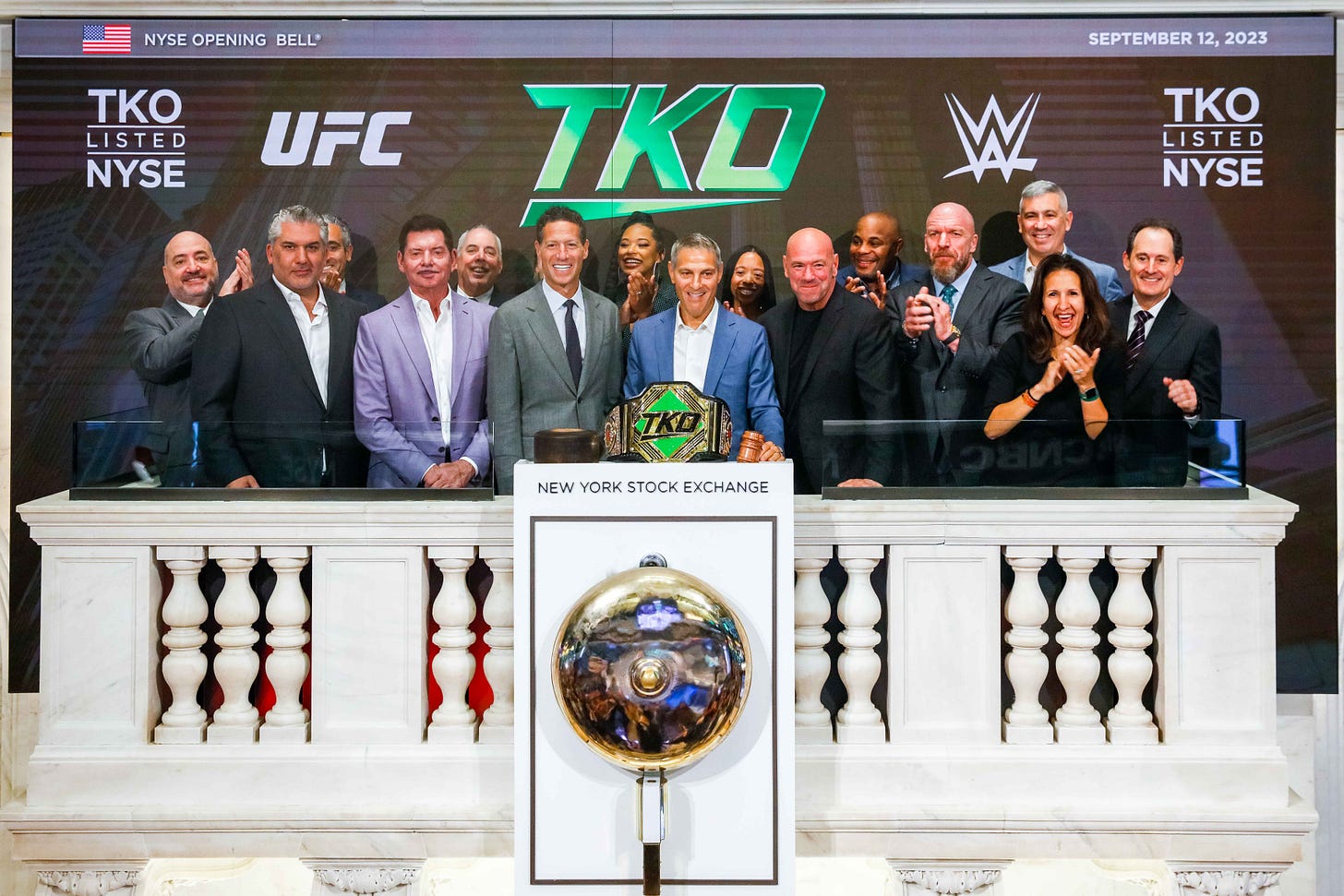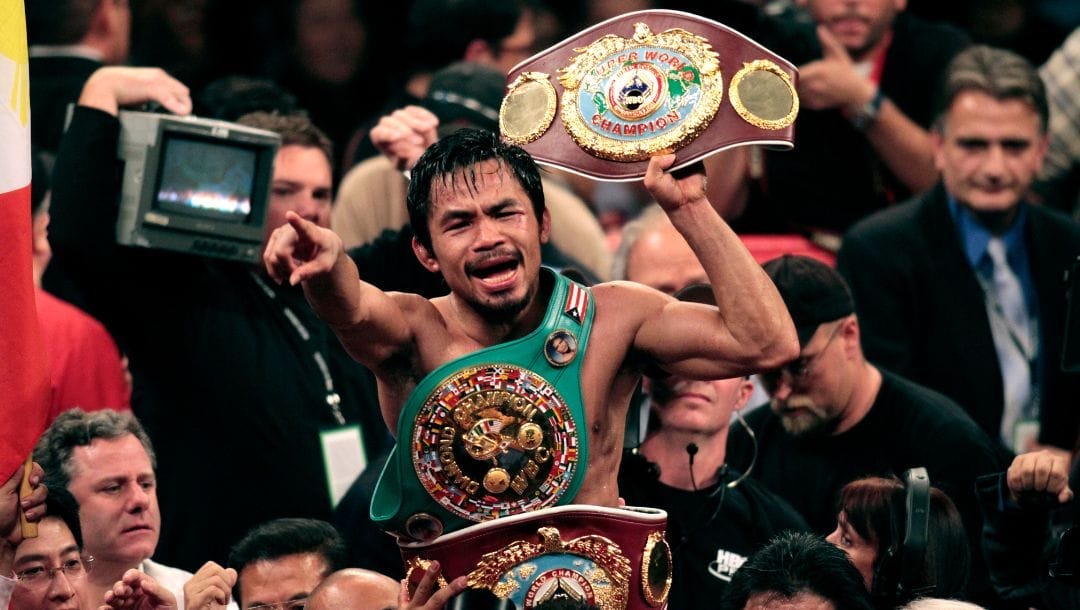5 Reasons Why Boxing Cannot Allow US to Modify the Ali Act
TKO, the owner of the UFC and WWE, is starting its own Saudi-backed boxing league. Before doing so, it wants to dismantle the sport's most essential protections.
Oleksandr Usyk, the undisputed heavyweight boxing champion, made over $132 million for his July 19 title defence against Daniel Dubois.
Compare this to MMA. Jon Jones, the UFC heavyweight champion until his retirement in June, was paid $6.2 million for his last title bout against Stipe Miocic.
This staggering gap isn’t just down to pay-per-view sales or star power. The Muhammad Ali Boxing Reform Act, or Ali Act, was passed in 2000 to stop promoters from controlling titles, rankings, and fighter contracts in boxing the way the UFC does in MMA. It ensures boxers can negotiate freely, shop around for the best deal, and crucially that promoters can’t rig the system in their own financial interest.
This is now under threat. TKO Group, the owners of the UFC and pro wrestling’s WWE, is lobbying to change the law. Flush with Saudi funding and poised to launch its own boxing promotion later this year, TKO wants to bring the UFC model to boxing. It is lobbying Congress to modify the Ali Act and allow it to crown its own champions, control fighter rankings, and run a unified league under its own brand.
Two lawmakers, Rep. Brian Jack (R-GA) and Rep. Sharice Davids (D-KS),have agreed and have proposed the Muhammad Ali American Boxing Revival Act.
This would be a disaster for boxing. Here’s why.
1. It Reintroduces Conflict of Interest Between Promoters and Titles
The Ali Act bars promoters from having a financial stake in championship titles or rankings. This separation ensures no promoter can manipulate title contests or ratings to favor their own fighters or business deals. The proposed changes would undo this firewall by allowing “Unified Boxing Organizations” (UBOs) – effectively promoter-run leagues – where a single company controls rankings, titles, and matchmaking.
For Gustavo Olivieri, president of the World Boxing Organization, “if you control the ratings, the fighters and the title, you have absolute power, absolute control." A promotion running its own championship has every incentive to protect its stars, freeze out dangerous opponents, and set up lucrative mismatches, with no independent body to uphold fairness.
2. It Threatens Fighters’ Earning Power and Leverage
Boxing’s fragmented structure may be frustrating at times, but one clear benefit has emerged: top boxers today earn far more, and have more leverage, than fighters in promoter-controlled sports like MMA.
When multiple promoters and independent titles exist, boxers can shop around for the best opportunities – essentially, promoters compete for the boxers.
By contrast, in the UFC’s closed system, fighters are tied to one promotion’s titles ad matchmaking. The promoter competes with no one – it controls the only path to a championship, drastically reducing fighters’ bargaining power. “Independent rank and title is the biggest protection that lets boxers earn so much more than MMA fighters,” explained combat-sports attorney Erik Magraken.
His warning is backed by real-world evidence: The UFC’s restrictive model was alleged to have suppressed fighter wages so severely that the promotion recently paid $375 million to settle an antitrust lawsuit by former fighters.
3. It Could Foster Corruption
This may seem laughable to frustrated boxing fans, but the Ali Act has reduced corruption in American boxing. It empowered state athletic commissions and created rules for financial transparency, objective rankings criteria, and the separation of roles. A boxing manager cannot also be the promoter, for example.
The new proposal would dramatically loosen those oversight reins. Under the bill, UBO promotions could even run their own anti-doping programs. In other words, TKO might choose its preferred drug-testing protocol or be lenient on how to enforce it.
Likewise, it would easily recreate scenarios the Ali Act was created to ban like fighters trapped in contracts or forced to acquiesce to secretive financial deals.
Boxing’s painful past shows the need for independent scrutiny. The sport cannot afford to return to the scandals of the late 1990s where top promoters and officials manipulated rankings, froze out non-compliant fighters, and exploited the others.
4. It Makes Fight Fixing Easier
Boxing has long battled a reputation for corruption, and not without reason. From boxing’s Mob ties in the early 20th century to the FBI investigations of the 1980s to Olympic refereeing scandals in 2016, the sport has never been clean.
The Ali Act has reduced the ease with which fights could be bought or manipulated in the shadows in the US. It created speed bumps, legal and reputational — that made fixing fights harder to pull off and easier to detect.
Now, TKO Group wants to eliminate those guardrails. But this model’s flaws have already been exposed in the UFC. In late 2022, a UFC fight involving featherweight Darrick Minner was flagged for suspicious betting activity. Hours before the bout, a flood of bets came in predicting Minner would lose in the first round — specifically due to an injury. Sure enough, Minner’s knee gave out almost immediately and he was finished within the opening minute.
That wasn’t the end of it. Investigators soon focused on James Krause, Minner’s coach and a well-known former fighter, who had been openly bragging in interviews and online forums about making money betting on MMA fights. Krause even ran a private Discord server where he sold betting picks and allegedly shared insider information about fighters’ health and training camps.
Minner was released, Krause sold his gym, and several Canadian states banned UFC betting outright.
5. Many Boxers Earn Poverty-Level Pay, But Weakening Ali Act Doesn’t Fix That
In California—the state with some of the sport’s most organized oversight—the median pay for a four‑round fight is just around $1,500, while an eight‑rounder might net $7,000, according to a recent report. This is a real problem, but nowhere near enough reason to dismantle the protections of the Ali Act. Its purpose was never to guarantee decent purses at the undercard level.
TKO’s bill suggests a minimum floor of $150/round for boxing, but the UFC’s mandated minimum payouts for fighters have often been blamed for worsening athletes’ pay, not improving it.
Additionally, the two fighters who earn Fight of the Night on UFC cards each receive a $50,000 bonus. That amount hasn’t changed since 2013.




Chris as someome who lives outside America how can i bring more awareness to this and help not have this act overturned?